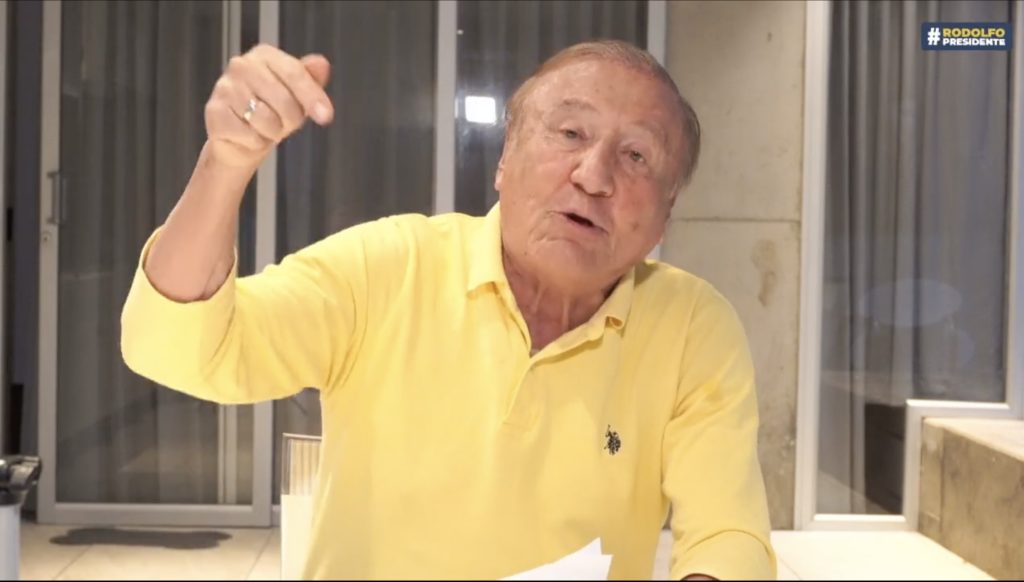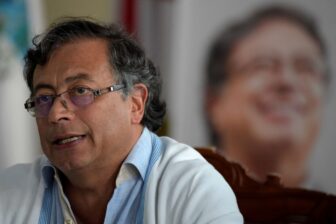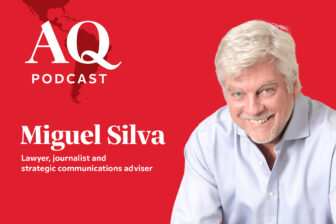As polls had predicted, Gustavo Petro (Pacto Histórico) placed first in the first round of the Colombian presidential election on May 29 with a 40% lead. The runner-up, Rodolfo Hernández (Independent) who had surged in polls in the last few weeks, amassed 28% of the preference.
The campaign towards the runoff election for the Colombian presidency on June 19 has already started with Hernández receiving the support of the third-place candidate, Fico Gutiérrez, who received about 24% of the votes.
AQ asked several observers to share their reaction.
Theodore Kahn, senior analyst in Control Risks’ Global Risk Analysis practice
Colombians delivered a stunning rejection of the traditional political class in the first round of presidential elections on Sunday. Gustavo Petro, a left-wing former guerrilla, finished first with 40.3% of the votes—the best performance for the left in Colombia’s modern history. Petro wants to overturn the social and economic model by ending new oil and mining exploration, guaranteeing public jobs for the unemployed, and ramping up protection for domestic industry and agriculture. The runner-up, Rodolfo Hernández, is an ideologically ambiguous populist and political outsider. His campaign, notably light on policy proposals, was all about throwing out the corrupt political class. Federico Gutiérrez, a conservative who had the support of traditional political parties, finished third, winning only in his native Antioquia department.
Hernández had been gaining fast in the polls in the two weeks leading up to the first round, but many analysists questioned whether this would translate into votes. It did. Hernández dominated in the Central and Eastern regions of Colombia, winning 13 of 32 departments overall. His support in rural areas and small towns in the Andean heartland was overwhelming. Hernández won all but 4 of the 123 municipalities of Boyacá department and all but 10 of 116 municipalities in Cundinamarca.
What explains this unexpected success? First, it is clear he occupied a strategic space in the political field, at the intersection of anti-establishment and anti-Petro sentiment. Second, while other candidates debated policy (occasionally) and traded insults on Twitter (often), Hernández hammered away at a simple message: corrupt traditional politicians are to blame for all the country’s problems. In this regard, he may have exposed a weakness in Petro’s campaign that few saw coming—after four years in the national political spotlight, Petro had become part of the political class for many voters. Finally, the cantankerous 77-year-old proved a master of social media—TikTok being his platform of choice.
Whatever the explanation, one thing is clear: Hernández, who was barely known outside his native Santander department several months ago, is now on the doorstep of Casa de Nariño. He is riding a wave of momentum driven by two powerful forces—anger at the establishment and fear of the left. He will likely attract a large majority of the more than 5 million voters, mostly conservatives, who supported Gutiérrez on May 29. He will also draw backing from more progressive sectors such as the Green Alliance party and other parties that formed part of the center-left Hope Coalition.
How Hernández would govern remains a mystery. In the coming days, he will start to unveil a potential cabinet, which will likely include market-friendly technocrats that reassure the political and economic elite. His campaign platform reflects his instincts as a self-made businessman: he wants to cut taxes and red tape while also protecting and promoting domestic industry. Of course, it would be a mistake to count Petro out. He won over 8.5 million votes on the first round, with commanding victories in major cities such as Bogotá and Cali, and the populous Caribbean coast.
Whoever wins will face the enormous challenge of meeting the powerful demand for change that drove Colombians to the polls on May 29.
Laura Gil, foreign affairs analyst, director of La Línea del Medio
If you add the votes given to Petro and Hernández, you pretty much get the 70% that had consistently, in every poll, expressed frustration with the current government. And those are also the numbers you get when you measure Duque’s popularity. This result is Duque’s legacy.
I am still not ready to call Petro a populist, but I am sure Hernández is a right-wing populist, with a lot of similarities to Trump. For the second round, we will see what will weigh more for voters: the fear of Petro or the fear of Uribe. Because Hernández has already said he is friends with Uribe, and received the support from the uribista candidate. I am not sure this is the end of Uribe – he may have just recycled into something else.
The concern with Hernández as president is the future of democracy in Colombia. With Petro I’d be concerned about good governance, whether he will be able to be a good manager, but I would not worry for democracy itself. Petro has good ideas, but he also had good ideas when he was mayor and had a hard time implementing anything or even building a team to work with. This is what should worry us about Petro, not of him turning Colombia into another Venezuela. With Hernández however I have deep concerns for the health of our institutions.
The fragile democracy we have, as fragile as it is, still deserves to be protected.

Juan Gabriel Gómez Albarello, associate professor at the Institute of Political Studies and International Relations at the National University of Colombia
There are three facts to be highlighted from the results of the first round of the presidential elections. The first one is the rejection of the options of the political establishment by the majority of voters (almost 75%). The low confidence in the institutions, the perception of corruption and the discredit of the current government took their toll on the candidate associated with the continuity of the way Colombia has been governed. Both Gustavo Petro and Rodolfo Hernández embody anti-establishment options. Both are populists whose popularity reflects the malaise felt by most citizens.
The map of the results of the first round roughly coincides with that of the results of the plebiscite on the peace agreements held on October 2, 2016. Petro won in Bogotá, the Caribbean Coast and the southwest with an advantage that would have allowed him to win the presidency at once. Almost the same thing happened with Rodolfo Hernández who won in a large part of the Andean region. Most Colombians want a change, but we are very divided about what that change would be.
During the presidential debates, Petro said that he would resort to mobilizing people in the streets, if Congress did not approve his legislative agenda. Hernández has said that he will resort to “democratic confrontation:” If Congress opposes his proposals, he will publish the photo of his opponents and accuse them of being bandits.
It is probable that the next president will be Hernández since Fico Gutiérrez has already given him his support. Despite the fact that he would be elected with an anti-corruption platform, Hernández is being investigated for a frustrated agreement with a private consortium, when he was mayor of Bucaramanga. The evidence against him is overwhelming, but his voters have preferred to ignore it and support a strong man who is emerging as the Colombian Trump.
Brian Winter, editor-in-chief of Americas Quarterly
With this result, Colombia becomes the latest country in the Americas to give its entire political class a giant finger, joining the U.S. (2016), Brazil and Mexico (2018), El Salvador (2019), Peru and Chile (2021), among others. For Colombia’s sake, I hope it works out better than some of those have.
These two anti-establishment candidates will now spend the next three weeks trying to prove who is more anti-establishment. It makes for a very volatile environment for both politics and investment. Whoever wins, significant change is coming to Colombia.







